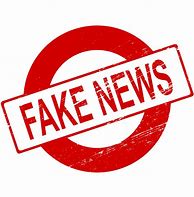News lies at the bleeding center of the crisis of trustworthiness in contemporary societies. The notion of a public factual truth, approximated through open debate among myriad independent views arbitrated by an engaged and responsible citizenry, is a core tenet of the modern conception of the public sphere and civil society. While an open, egalitarian public sphere has always been a standard only imperfectly realized, and public opinion has always been biased to some extent by concentrations of power and by ideological zealotry, the ideal of an open community of discourse has never been significantly challenged as a value and a model. The internet, to its early proponents, held the promise of overcoming certain traditional distortions in the public sphere, disintermediating public exchange and disempowering gatekeepers who wielded outsize influence on the direction and tone of public debate. Yet, today our digital societies experience a profound crisis in the status itself of the public sphere as a repository of commonly agreed facts about our shared experience. The informational ecosystem is populated by mutually incompatible regimes of fact with no agreed-upon adjudication procedure or authority. In this unsettled landscape, multiple actors are able to spread disinformation. As a reflection of this reality, generic trust in the public sphere and its traditional institutions has plummeted.

The investigation into the implications for trust of the current news media environment takes place in a very crowded field, as the issue is both intellectually fascinating and of decisive political importance. While being mindful of the stakes and of the significant risks systemic disinformation poses, it is crucial not to be confined to an enforcement paradigm, focused exclusively on the mechanisms to most effectively deter and repress disinformation. Questions regarding the social conditions of possibility of the generalized crisis of trust are just as vital, and arguably even more fundamental. In this vein, the research project aims to explore three main themes. The first has to do with the changing understandings of what counts as a fact, and who gets to decide, for what public and what category of facts. The second concerns the psychological, legal, and ethical status of falsity, including the relevance of intentionality, that is of good or bad faith: what behavior is deemed appropriate to respond to false statements? Finally, given the reality of low trust in public debate, the project will enquire after the trustworthiness-building strategies of different actors: in particular, the relative merits of an emphasis on the disinterestedness of the speaker vs. the objective incentive convergence between speaker and public will be assessed.

Many metrics are available for quantifying levels of trust in information and in the public sphere more generally. The project will focus on data on misinformation campaigns, and specifically on estimations of fake news prevalence from fact-checkers and from platform take-downs, closely tracking definitional variations, standards, and policies. Attention will also be paid to measurements of public opinion, particularly polls on public trust and its fluctuations based on medium and sourcing authority. In parallel, expert opinion will be obtained, especially from journalists and policymakers.
Basic references:
- Howard, P.N., 2020. Lie machines: how to save democracy from troll armies, deceitful robots, junk news operations, and political operatives. Yale University Press, New Haven, Connecticut.
- Muirhead, R., Rosenblum, N.L., 2019. A lot of people are saying: the new conspiracism and the assault on democracy. Princeton University Press, Princeton, New Jersey.
- Pomerantsev, P., 2019. This is not propaganda: adventures in the war against reality. PublicAffairs, New York.
